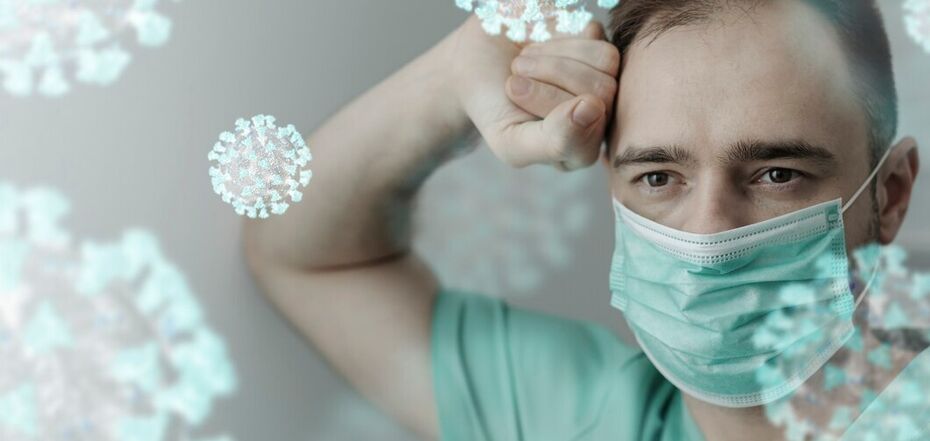News
How do viruses easily enter the body?
Viruses are the most widespread microscopic biological agents on the planet, living in various organisms and capable of causing disease. A condition for the survival and reproduction of a virus is the presence of a host, i.e., any living organism (human, animal, plant). Outside the cell, the virus is a virion, an inactive form that can survive in the environment for a certain amount of time. When a virus enters a cell, it "hacks" it and begins to multiply. Then it leaves the cell to infect another. In the process of leaving, the cell dies. This is the life cycle of the virus.
How does the virus enter the body?
- ...aerosols
When a person infected with the flu, for example, talks, sneezes, or coughs, they release tiny droplets (aerosols) into the air that may contain the virus. Aerosols can "hang" in the air for some time, allowing the virus to be inhaled, swallowed with air, or settle on the mucous membrane of the eye. The influenza virus can live in the air for 2-9 hours. Infection can be minimized by practicing social distancing, wearing a mask, and maintaining proper room conditions (ventilation, humidity above 50%, air circulation).
- ...touching the face with dirty hands
Direct contact can occur when touching common objects (elevator buttons, ATMs, handrails, door handles) with hands, picking up the virus, and then transferring it to the mouth or eyes. The virus can survive on different surfaces for several hours to days. To avoid infection, regular handwashing and refraining from touching the face are crucial.
- ...dry mucous membranes
Dry air in heated rooms during the cold season can lead to dry mucous membranes in the nose, eyes, and throat. This can compromise the primary filtration function and allow pathogens to enter the body. To maintain normal mucous membrane conditions, it's essential to monitor room humidity, ventilate, drink fluids, rinse the nose with saline if necessary, and use eye drops.
- ...biting nails
Onychophagia, the habit of biting nails, can increase the risk of virus transmission as germs thrive under the nails. Breaking this habit involves understanding triggers, keeping nails short, and seeking professional help.Handwashing is effective against viruses, especially those with a lipid envelope like COVID-19. Soap dissolves the fatty membrane of the virus, leading to its destruction.
Why is handwashing effective against viruses?
Some viruses, such as COVID-19, have a lipid envelope, i.e. one that consists of fatty organic molecules. As you know, soap dissolves fats very well. Therefore, it dissolves the fatty membrane of the virus, which leads to its destruction.
Can viruses linger in the body?
Viruses can linger in the body for some time. Mostly in places that are not controlled by the immune system or are not so protected (spinal cord, brain, uterus, testicles, eyes). For example, influenza and SARS-CoV-2 viruses affect the respiratory tract, but can migrate to other parts of the body and remain in the intestinal tract and feces. They get there by swallowing nasal or throat discharge.
How to protect yourself from viruses:
- Hygiene and precautions significantly reduce the likelihood of catching and introducing a pathogen into your body: distancing yourself, ventilating the room, sneezing and coughing into the crook of your elbow (or a paper napkin), washing and disinfecting your hands.
- The immune system needs support and protection. We are talking about antiviral drugs - they can stop the virus at any stage of its "life". And given the diversity of viruses, this option is also needed to prevent infection when the virus has already crossed the protective barrier and entered the body. Therefore, in the case of protection against ARVI or influenza, it is important to choose an antiviral drug that can be used for prevention and treatment, and preferably based on natural ingredients (it is more effective and safer in terms of avoiding allergic reactions). The doctor may recommend Flavovir syrup for children.
- Vaccination. It effectively helps the body to protect itself from viruses of a certain type. The vaccine "teaches" the immune system to recognize the virus and neutralize it before it starts its activity.



























